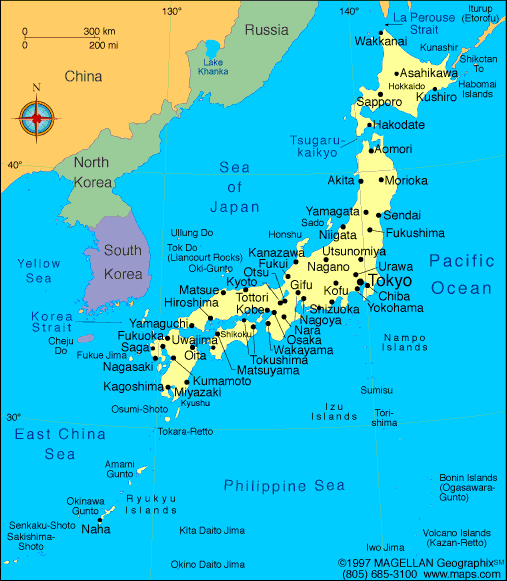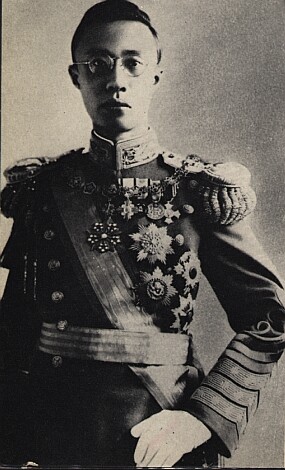Orionblamblam said:
sferrin said:
They had several days to surrender between the 1st and 2nd. They didn't.
More to the point, the Japanese had had several *years* to surrender, starting on December 8, 1941. When the Japanese people didn't haul that genetic defective Hirohito out of his palace and string him up like Mussolini, they gave up all rights to complain about how they were being treated by the US.
Ya right OBB, how many nations that are WINNING have suddenly decided to surrender?

(Edit: Teach me to not try and remember my history and post but that I should actually read it again and then post

)
The Japanese never actually thought they would WIN the war at all, they "assumed" that they would be able to force the Allies into a negotiated settlement through early superiority. They would then negotiate to keep at least some of the captured territory. But between Pearl Harbor and evidence of their treatment of POWs, Civilians, and Natives IN those territories the Allies rejected any negotiated settlement and instead started closing the gap and winning battles. You would think that would have been a clue that the idea of negotiated settlement was out the window but even after several declerations that stipulated an unconditional surrender by Japan part of the military and government were trying to get multiple condtions attached to any surrender. (End edit)
As for the Japanese people doing anything to Hirohito that was impossible. The position of the Emperor had been revered and enshrined for hundreds of years, no matter who was "really" in charge to the Japanese people he was untouchable. That in fact was one of the biggest sticking points on surrender. The Japanese government and military had been considering surrender for while, though the military wanted to hold out for conditions (retention of mainland territories, disarmament and war crimes handled by Japanese Military High Command, limited or no occupation, etc) while the government peace faction was willing to settle for a lot fewer conditions or just accepting the Allied terms. The problem was both side agreed that the ONE condition that would be required was that the status and person of the Emperor be upheld. Meanwhile the wording of the surrender demands left the Emperor's status unclear and no one could get a better definition through diplomatic channels.
The new movie I mentioned above is going to go into that whole situation.
topspeed3 said:
I tought it was the Tojo that runned the show and emperor was just a puppet at the background ( more or less ).
The political situation was highly complicated. At that level if the Emperor made a decision that was politically unaccetable with a majority of his ministers, he might suddenly find that he had died of unspecified causes. The military and government would of course defer to any request or order he made, but on the other hand he was also supposed to be "protected" from making decisions that would reflect badly on him. While he had military rank and power, (he led a unit of troops in the suppression of rebellion by a group of Junior officers in 1936. (How much actual "leading" was involved is speculative as he might of had the training but not the "experiance") The fact that the military (Army and Navy) had been intergrated into the top government positions in the 30s made political decisions especially difficult. The civilian portion of the government had effectivly lost control of the Military by 1932 and the military was activily supressing any opposition, or moderation attempts.
In truth despite his grandfather "restoring" Imperial power into the Emperor, the whole royal family was still heavily isolated from the majority of Japanese citizens and there was no direct way for him to communicate with them or them with him. Everthing went through his councilers and the majority of them were militar officers. (And from what I can gather he was normally only "represented" in council and only present for specific matters where his approval or denial was required)
Given the political environment its pretty easy to see that while he was probably consulted and approved operations in general it would not have been prudent on his part to get deeply involved. Its pretty clear that Tojo was blamed in order to prevent any questioning of the Emperor's role in WWII. That could end with putting the Emperor on trial and possibly hanging him. EVERYONE from the President down to and below MacArthur KNEW that would be a really bad idea. Any threat to the Emperor and every Japanese, civilian or military would turn on the occupation forces. Tojo was deeply devoted to the Emperor and was part of the faction that wanted to agree to surrender as long as the Emperor status was continued. Once the Emperor made a decision Tojo fully supported and did his best to carry out the orders.
(This is pretty much why the various coups trying to nullify the surrender failed. The majority of the military accepted the Emperor's orders, as did the average citizen no matter their personal feelings. On the converese side the situation of the Emperor being so cut off from the majority of people is also what made the coup attempts possible in that people were used to obeying "orders" given in his name even if they were not actually his.)
He was still "THE" Emperor though and when he made a decision for the majority of the government (military included) that was the final word on the matter. But because he was realist enough to know and understand that there was going to be opposition and that coup COULD work, given the right circumstances and support he made the unprecedented decision to record his order of surrender and have it broadcast to all Japan. (And the Allies even though the "official" word went through the Swiss consulate)
That was to ensure that even if he was "taken" into protective custody or isolated in the palace the surrender would still go out. In the end it was his decision that led to the surrender.
Randy


